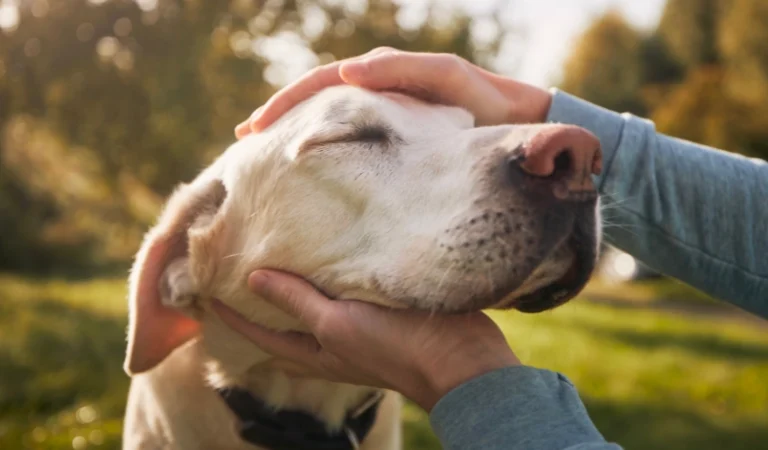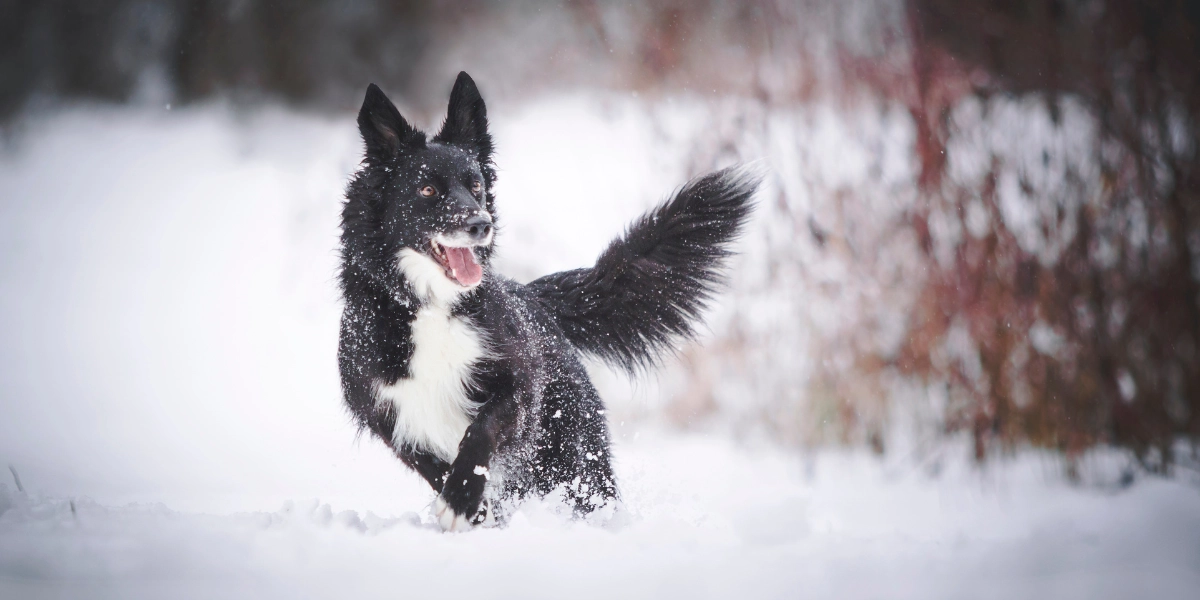As the temperatures drop and winter settles in, many dog owners notice their pets moving more slowly, struggling to get up, or showing signs of discomfort.
For dogs with arthritis, colder weather can make symptoms worse, leading to stiffness, pain, and reduced mobility.
Understanding how winter affects arthritic joints and taking steps to manage your dog’s condition can help keep them comfortable, active, and happy throughout the colder months.
How Cold Weather Impacts Arthritic Dogs
Arthritis, or osteoarthritis, is a degenerative joint condition that causes inflammation, pain, and stiffness. Just like humans, dogs can feel the effects of chilly weather in their joints. Cold temperatures can:
Increase stiffness and discomfort – Low temperatures make muscles and joints tighten, causing slower movement and difficulty rising from lying or sitting positions.
Aggravate inflammation – Cold can worsen joint inflammation, leading to flare-ups and temporary spikes in pain.
Reduce activity levels – When walks become uncomfortable, dogs may move less, which can contribute to weight gain, weaker muscles, and further joint strain.
You may notice your dog showing signs such as limping, hesitation to jump or climb stairs, whining or yelping when moving, or simply sleeping more. Recognising these early signs allows you to adapt their care before the winter months make it worse.

Practical Tips to Keep Your Dog Comfortable This Winter
There are several ways to help your arthritic dog stay comfortable and maintain mobility during winter. Small adjustments can make a big difference in how your dog feels.
1. Keep Warm Indoors
Provide cosy resting spaces for your dog. Extra blankets, or placing their bed away from draughty areas can help keep joints warm and reduce stiffness. Consider creating a quiet corner with soft bedding where your dog can retreat for warmth.
2. Protective Clothing
Dog jackets, sweaters, or fleece coats provide extra insulation during walks, particularly for small breeds, senior dogs, or those with short fur. These layers can prevent muscles from tightening during outdoor exercise.
3. Adjust Exercise Routines
Maintaining activity is vital, but exercise may need adapting in winter:
- Take shorter, more frequent walks instead of long, strenuous outings.
- Avoid icy paths or areas treated with salt, as these can be slippery or irritate paws.
- Use gentle indoor play, such as hide-and-seek with toys or interactive puzzle feeders, to keep your dog moving without stressing their joints.
4. Massage and Physiotherapy
Gentle massage helps increase circulation and ease stiff muscles, while professional physiotherapy can maintain joint flexibility and strength. Simple exercises like assisted leg stretches or slow stair climbs under supervision can also improve mobility.
5. Maintain a Healthy Weight
Extra weight places additional stress on arthritic joints. Feeding a balanced diet and controlling treats can prevent winter weight gain, helping your dog move more comfortably and reducing pain.
6. Warm Baths and Paw Care
Warm baths can soothe aching muscles and joints, improving circulation.
After walks, check paws for ice, salt, or frostbite and dry thoroughly to prevent discomfort. Paw balms can help protect pads during harsher weather.
7. Veterinary Support
Your vet can recommend further advice, discuss pain relief and other interventions to manage arthritis symptoms. Seasonal check-ups are particularly helpful to monitor your dog’s condition, adjust treatments, and provide guidance tailored to your pet.

Keep Your Dog Active and Happy All Winter
Arthritis doesn’t have to slow your dog down this winter. With a few thoughtful adjustments, your dog can remain mobile, comfortable, and happy, even in cold weather. Simple changes like warm bedding, protective clothing, gentle exercise, massage, and veterinary support can make a huge difference in your dog’s quality of life.
By taking proactive steps, you can help your furry companion enjoy winter walks, playtime, and cosy indoor moments without unnecessary pain or discomfort.
If you’d like tailored advice or a professional check-up to keep your dog feeling their best this winter, contact our friendly veterinary team at The Vet Whitehaven today who are more than happy to help.









